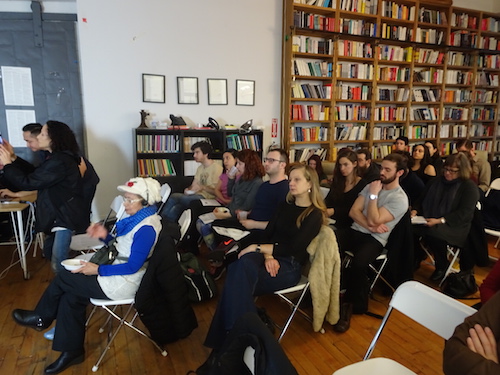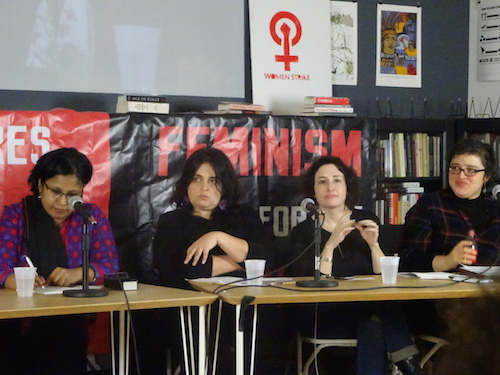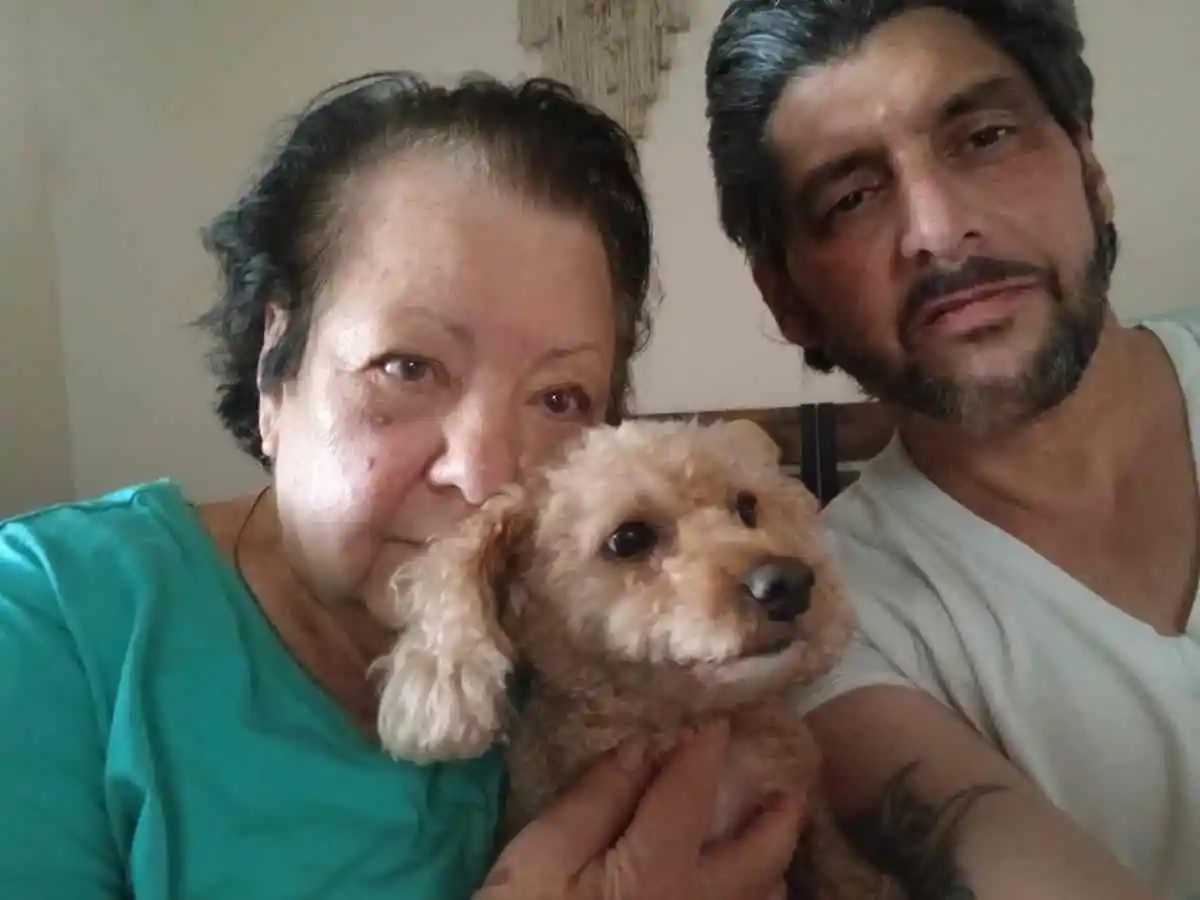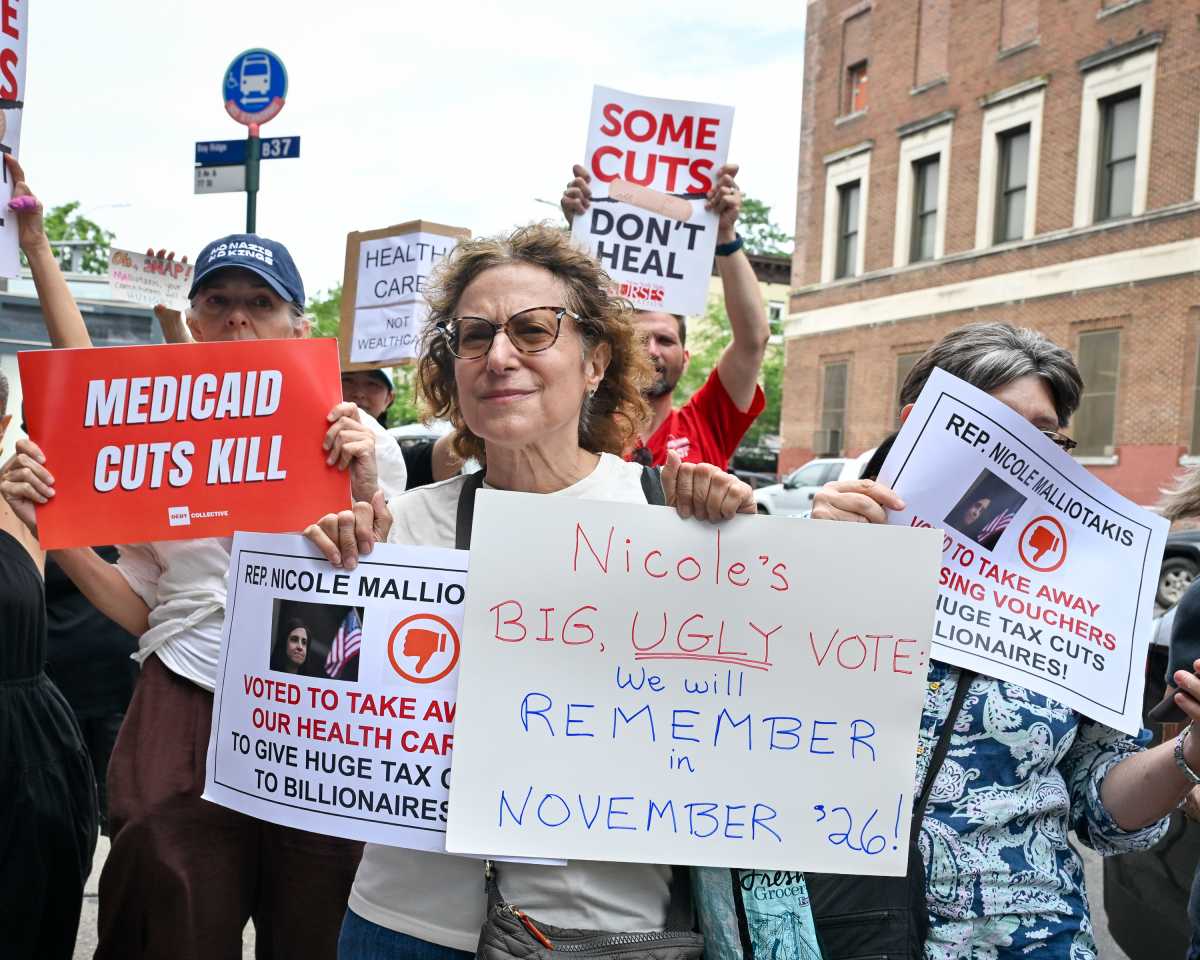Several influential women from around the world gathered at Verso Books, 20 Jay Street in DUMBO yesterday to discuss the work they’re planning to do – or lack thereof – for this year’s International Working Women’s Day.
March 8 of this year will mark the second annual International Women’s Strike (IWS), a worldwide withdrawal from work on behalf of women – particularly women of color. To explain what the strike means to them and why their participation is so important, seven high-profile supporters of the IWS hosted a panel discussion, followed by a Q&A session.
The panel was moderated by Natalie Matos and Ximena Bustamante of IWS-NYC, who were accompanied by Jeanette Vizguerra, immigrant rights organizer; Chaumtoli Huq, founder of Law of the Margins; Sarah Jaffe, journalist and author of Necessary Trouble: Americans in Revolt; María Inés Orjuela, housekeeper at the newly unionized Hilton Hotel; and Suzanne Adely, co-chair of the National Lawyers Guild International Committee.

Vizguerra, nominated as one of Time’s Most Influential People of 2017, said that she sees the IWS as a means to demonstrate the inherent value that working women of color bring to society.
“It is not only about being an activist,” said Vizguerra. “It is also demonstrating to this country that our work is important. And that is why we are calling for a strike on March 8, so that people can feel the presence of our importance and our work – but also, overall, the importance of the work of women of color.”
Orjuela talked about the resistance she experienced as an advocate for Hilton Hotel workers. She said that her union’s success was borne not just from their numbers, but also from their cohesion and conviction, and claimed that the success of this year’s IWS will be dependent on the same factors.
“[Hilton Hotel’s management team] would have group meetings with us to try and convince us that the union was bad for us,” said Orjuela. “And all those people that they hired were useless, because they weren’t able to convince us of what they were saying. We were strong, and we didn’t believe them.”
Huq focused on the issue of intersectionality, claiming that the adversity that working women of color face is the result of several avenues of oppression, including sexism, racism, classism and imperialism. This, she said, was especially evident when she was arrested by the NYPD in 2014 for protesting the violence in the Gaza Strip.
“I know very clearly, through my eyes as a girl, as a young woman, and now as a mother, that racism, violence, imperialism, sexism and state violence are interlocking oppressions,” said Huq. “And that they work on the bodies of all people – women, women of color – in most violent ways. We experience that daily.”
Adely discussed the issues faced by working women that often fly under the radar. In particular, she brought up the unpaid domestic labor that working women are burdened with in addition to the work that they do for a living.
“I’m coming from a community where I have aunts, I have a mother…much of their labor has been taking care of their land, taking care of their family and taking care of their neighbors,” said Adely. “It’s a labor that is physical and emotional, and that is often unacknowledged, and is often unpaid, but it’s very much part of why our communities are able to sustain themselves.”
Finally, Jaffe explained that a “strike”, in this context, isn’t merely a refusal to work in order to disrupt production or emphasize the importance of one’s labor. This year’s strike, she said, will be used to demonstrate international solidarity and power among women.
“When we think about the women’s strike, I’m thinking about the women in Ireland who are striking for legal abortions,” said Jaffe. “I’m thinking about Polish women who went on a similar strike. I’m thinking of the women in Bangladesh. I’m thinking of women all over the world who are striking to demonstrate against very particular oppressions where they are, but also against the ones that connect us all.”










